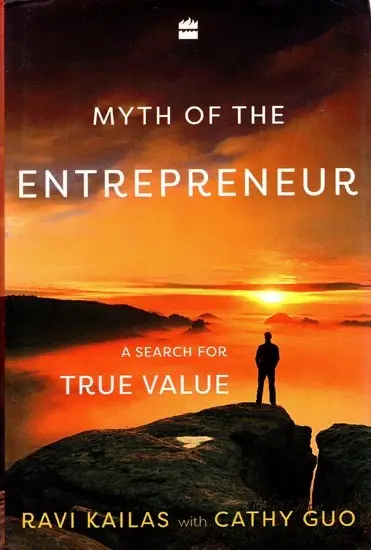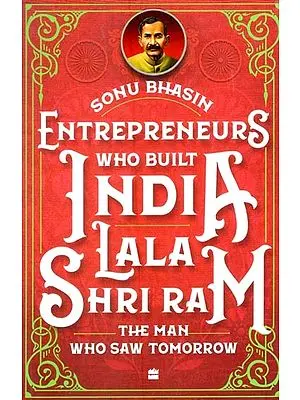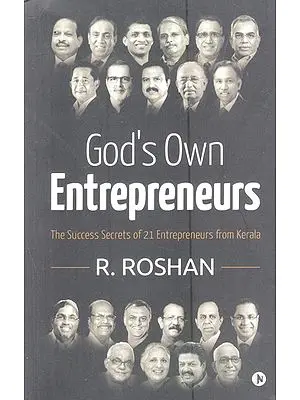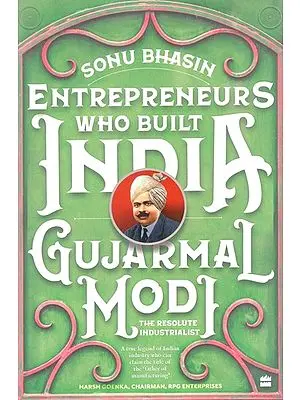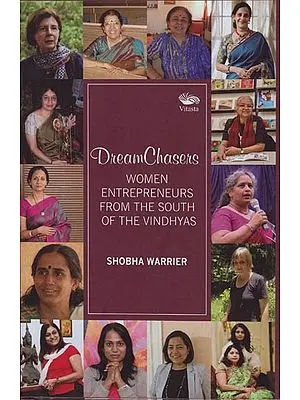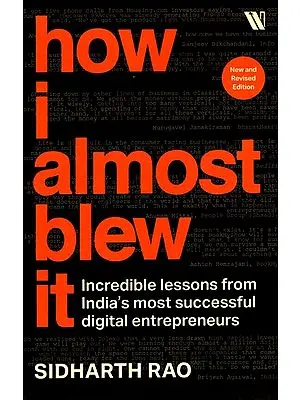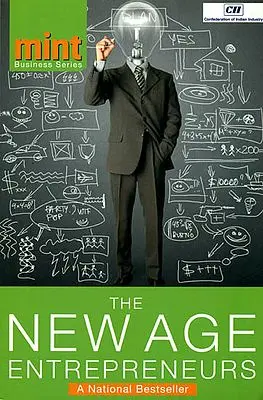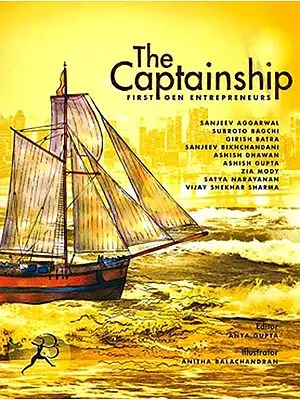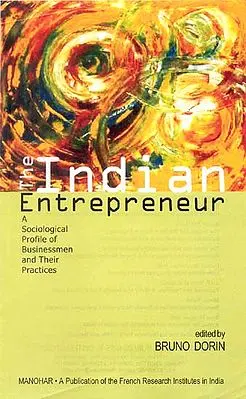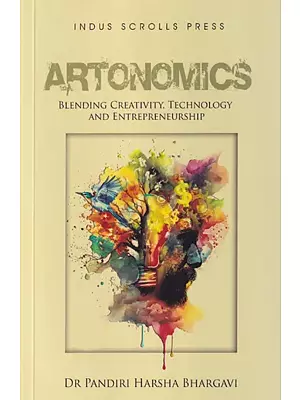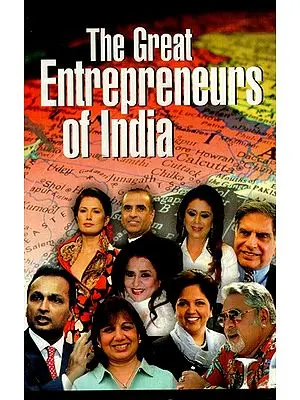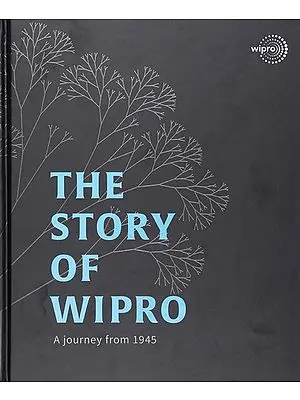Myth of the Entrepreneur : A Search for True Value
| Specifications |
| Publisher: Harper Collins Publishers | |
| Author: Ravi Kailas & Cathy Guo | |
| Language: English | |
| Pages: 232 | |
| Cover: HARDCOVER | |
| 9.00 X 6.00 inch | |
| Weight 330 gm | |
| Edition: 2019 | |
| ISBN: 9789353028350 | |
| UBJ796 |
| Delivery and Return Policies |
| Ships in 1-3 days | |
| Returns and Exchanges accepted with 7 days | |
| Free Delivery |
That happens when a successful entrepreneur who built and managed the world's largest independent payphone company when he was still in his early thirties, begins questioning his identity as a value creator? What happens when he pauses and reflects on the nature of consciousness value and personal identity only to redefine for himself, the relationship between the entrepreneur and society?
Triggered off by a heart attack at thirty-eight Ravi Kailas's search takes us through the challenging, yet ultimately rewarding. process of shedding the self to discover service His story is set against the backdrop of inspirations that are deep and varied from Vipassana meditation to Alexander the Great, from Ashoka to Chuck Feeney, from the pioneers of trusteeship like Jamsetji Tata to a deep analysis of its relevance to modern-day inequality across the globe.
Myth of the Entrepreneur is an intimate exploration of Kailas's journey to understand what constitutes true value, and how each of us can interrogate this concept of 'value' to lead more fruitful, connected and liberated lives. For today's young executives, this book will be an indispensable guide as they search for meaning and satisfaction in an ambitious, sometimes ruthless, world.
Ravi Kailas is a serial entrepreneur who has built and scaled ventures spanning telecom, software, financial options, infrastructure and more. He currently serves as the chairman of the board of Mytrah Group, which tackles next-generation opportunities such as renewable energy, electric vehicles and deep tech in India. He spends much of his remaining time on Pravaha Trust, an open philanthropic foundation seeking to redefine development in India.
Cathy Guo is still defining her identity. She graduated from Columbia University with a degree in Economics and Philosophy. As a writer, she has primarily published poetry and (unreadable) literary theory. She now lives in Bengaluru, India, and is always looking for new stories to tell. This is her first book.
As an entrepreneur, you learn to master serendipity. While determination, persistence, ingenuity and rationality are necessary ingredients for success, understanding how to seize the unexpected to your favour is essential. The labour, love and sheer serendipity that went into the book you now hold in your hands is nothing short of a miracle, not for the book's merits (which are still being determined), but for the unlikely set of events that brought the book into being.
I have spent a major part of my life preferring privacy, often deviating from my peers in industry and business who lead much more public-facing lives. When I first embarked on writing a book, it was with the intention of encapsulating some of the learnings and evidence I had gathered as an entrepreneur in India and as a citizen of the world - specifically the alarming trends in rising inequality, the attitudes and assumptions of wealth-creators, and the rising discontent towards the globalization-powered growth of the past two decades, which had enriched as many as it had left behind.
One question, above all, tormented and propelled me: what is the nature of value? What does it mean to value something - and how do we determine what is valuable - as an individual and as society?
I thought of myself as a relatively progressive and 'enlightened' fellow, who had found some insight into these questions and was implementing them in life and in business. But in writing this book, my assumptions and perspective have been broadened and challenged in ways that are revolutionary, and I am speaking as someone who has 'reinvented' his own mode of being many times over.
The book that you hold in your hands is the result of a collective effort. This effort was led by Cathy, whose brilliance and deep dedication not only brought the book into existence, but also opened my eyes to just how radical, powerful and humane the younger generation could be in reimagining the future. It was a deliberate choice of mine to put two voices together-one reflecting on the past and one looking towards the future. She assembled a brilliant team from multiple academic disciplines and backgrounds; together, we spent many evenings in my living room in London outlining, debating, reading, writing, discussing. Only 5 per cent of that research effort has landed in the final manuscript, but the learnings that we took from the process are lifelong.
HE earth may be a fact; but the world is an idea. Who authors THE this idea; how does our world come to be what it is? A variety of forces - demographic, social, political, and historical - are all at play. That said, the drives and deeds of a rare breed of individuals are also major forces in shaping our world. We refer to that rare breed of individuals as 'entrepreneurs'.
What makes entrepreneurs, at least the successful ones, rare and influential? Simplifying, we can point to three reasons: one, their command of resources. Two, the power - not only economic but also social and political - that comes to accompany these resources. And three and perhaps most importantly, the unequal talent that is often at the root of their success and power. Talent, it seems, is unequally distributed across humanity. What though of the distribution of the fruits of this unequal talent?
This question has long spawned doubt and not a little debate. Most recently, one may recall the former US president Barack Obama's provocative refrain to entrepreneurs, 'You didn't build that.
In Myth of the Entrepreneur, Ravi Kailas, a successful serial entrepreneur (a member of the rarest of that rare breed), confides his confrontation with and contemplation on this question. His life journey is as gripping as it is unlikely. Marked by drama and serendipity, Ravi's journey leads us through a personal transformation from an individual entrepreneur to a collective value-creator, from striver to witness, from ego to the discovery of something new. For Ravi, the entrepreneur should not be just a clever arbitrageur or an ingenious creator, but also be a wilful trustee and caring agent of society.
In a world of worsening inequality, diminished trust in established social systems of rewards and tectonic shifts driven by technology and climate on the horizon, how can the entrepreneur refashion her worldview and responsibility to better create and distribute value for the world? In place of the conventional 'meritocracy (the power of merit, where rewards go to the individual), can entrepreneurs realize and practise 'meritosophy (the wisdom of merit, where rewards go to the collective good)? The point is not to abandon private enterprise or ownership, but to integrate it with broader ethical paradigms of value creation such as trusteeship.
Book's Contents and Sample Pages
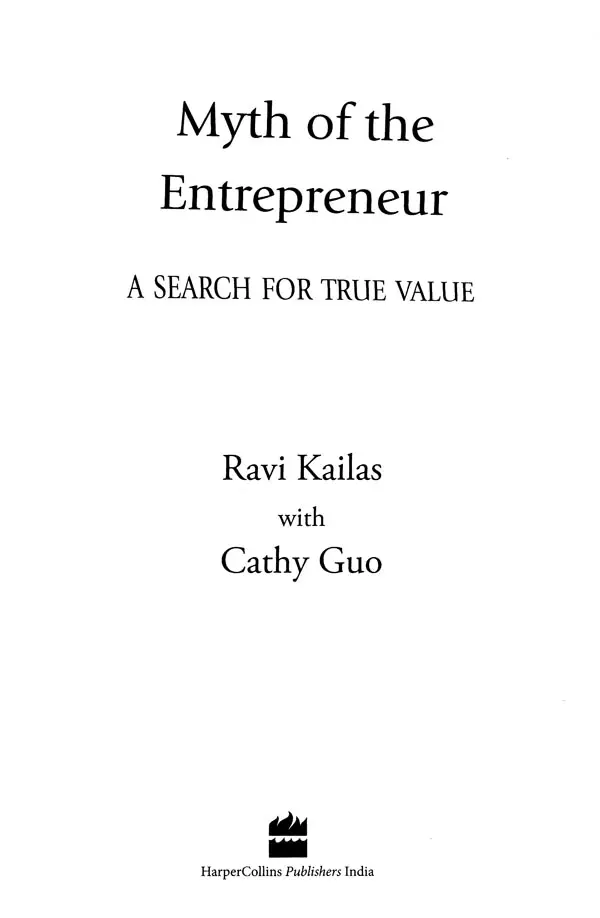
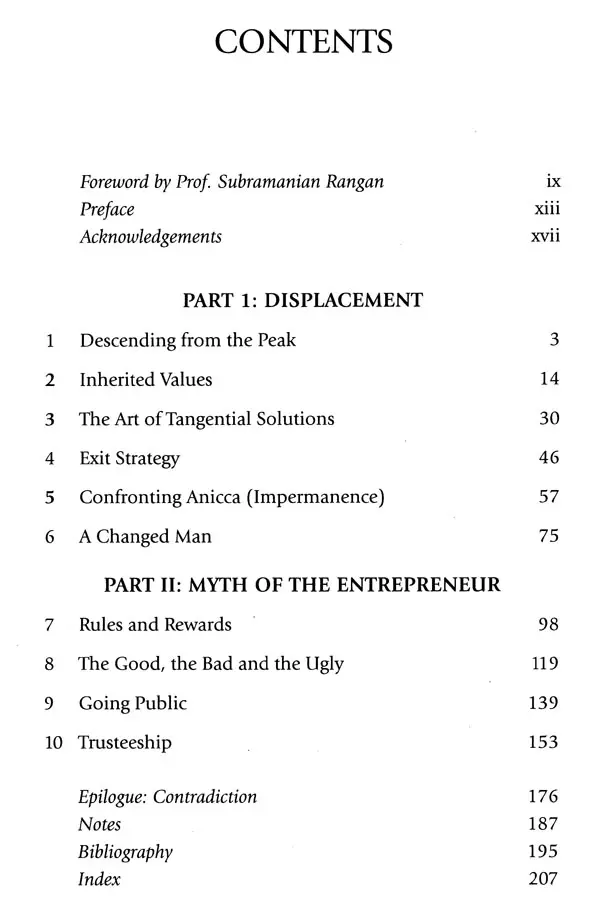

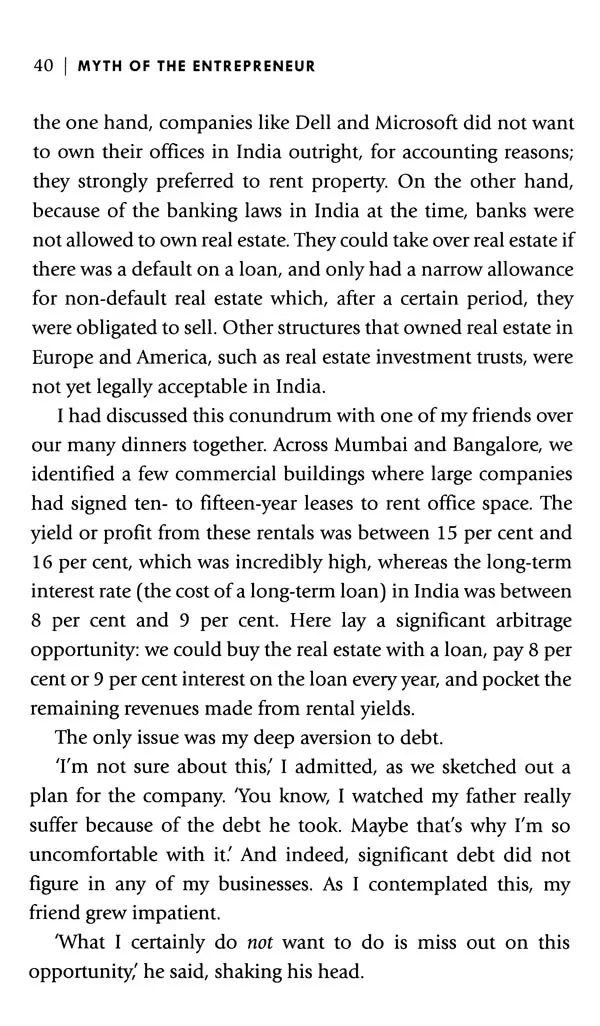


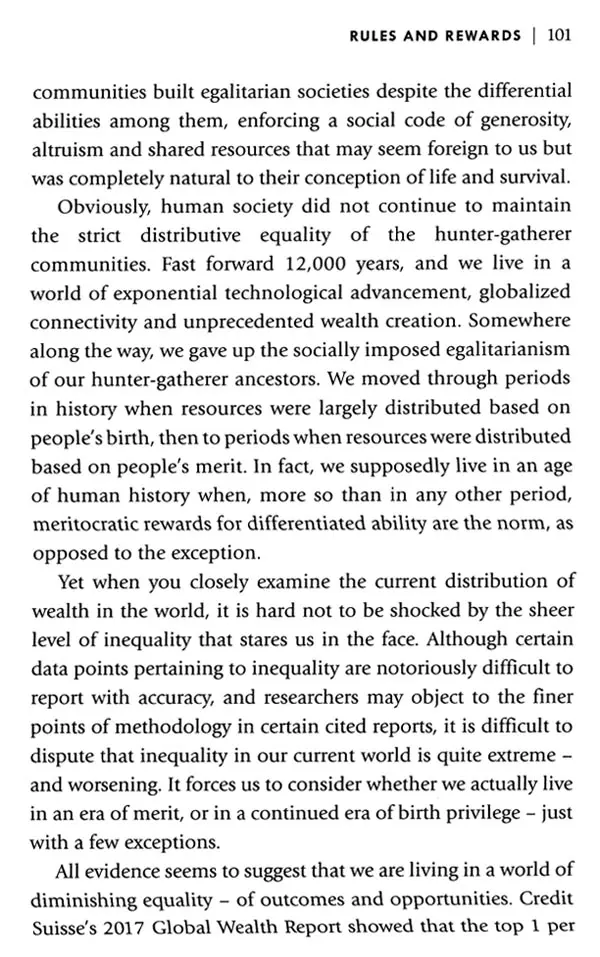
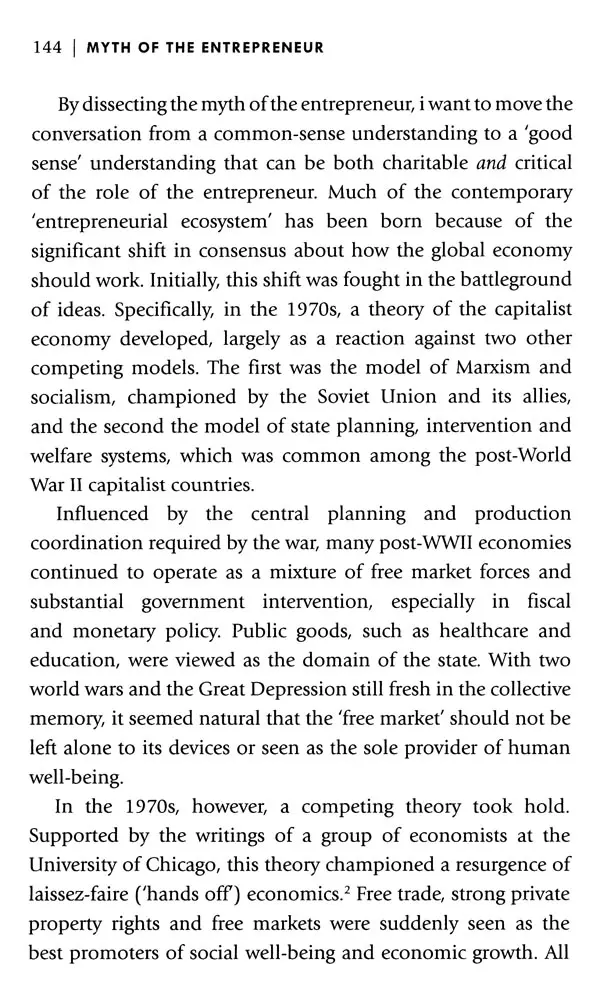
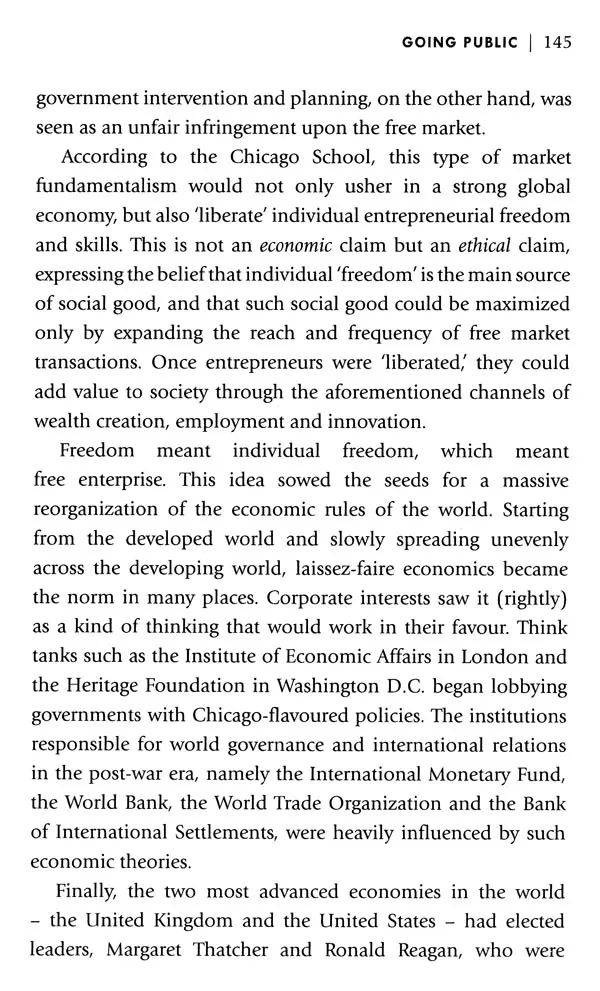
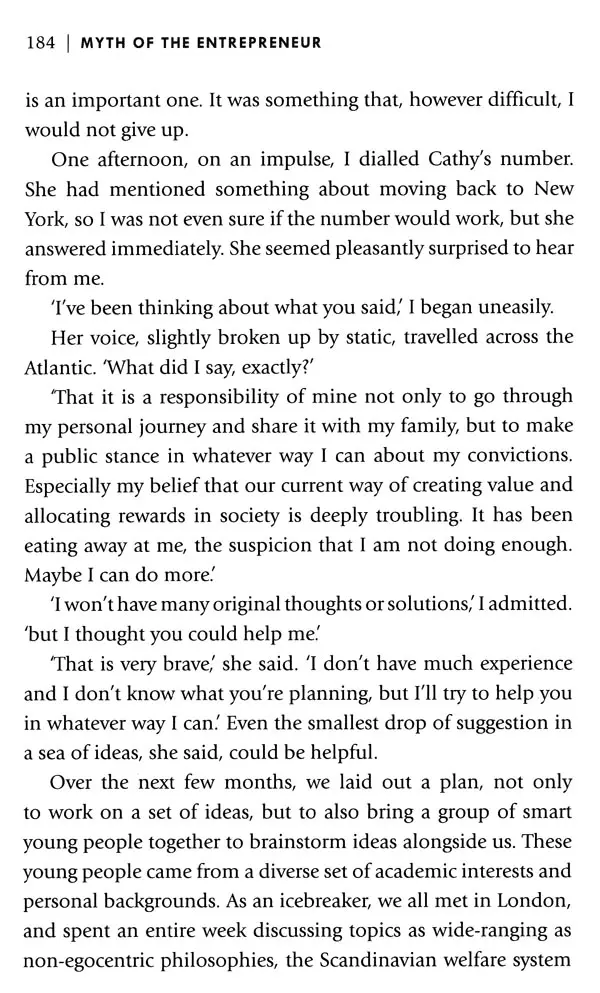
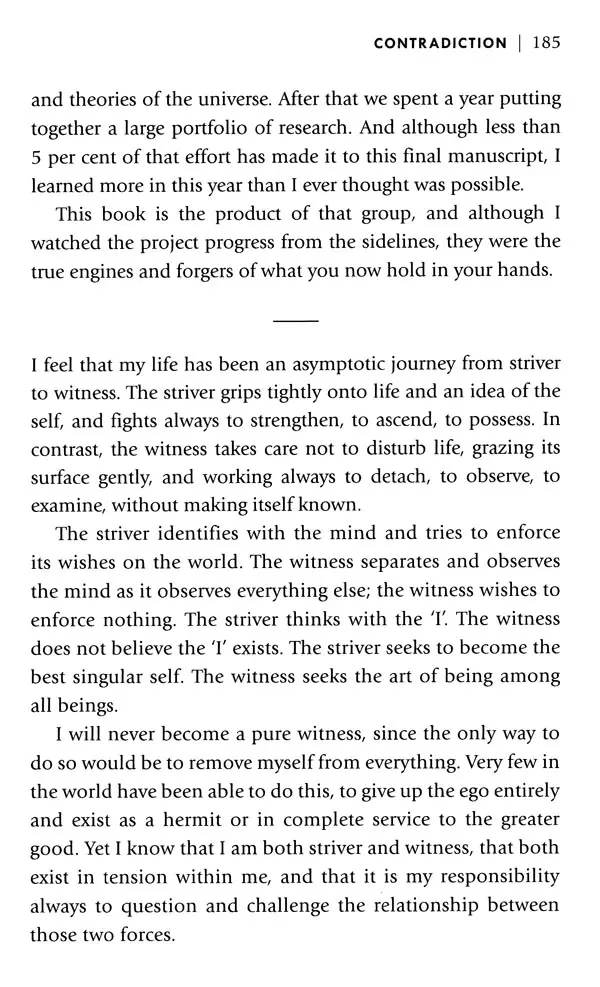
-
Q. What locations do you deliver to ?A. Exotic India delivers orders to all countries having diplomatic relations with India.
-
Q. Do you offer free shipping ?A. Exotic India offers free shipping on all orders of value of $30 USD or more.
-
Q. Can I return the book?A. All returns must be postmarked within seven (7) days of the delivery date. All returned items must be in new and unused condition, with all original tags and labels attached. To know more please view our return policy
-
Q. Do you offer express shipping ?A. Yes, we do have a chargeable express shipping facility available. You can select express shipping while checking out on the website.
-
Q. I accidentally entered wrong delivery address, can I change the address ?A. Delivery addresses can only be changed only incase the order has not been shipped yet. Incase of an address change, you can reach us at help@exoticindia.com
-
Q. How do I track my order ?A. You can track your orders simply entering your order number through here or through your past orders if you are signed in on the website.
-
Q. How can I cancel an order ?A. An order can only be cancelled if it has not been shipped. To cancel an order, kindly reach out to us through help@exoticindia.com.












